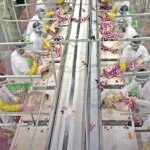Canadian cattle feeders breathed a sigh of relief after a cyberattack that threatened to shut down the world’s largest meat packer’s North American and Australian operations proved short-lived. Brazil-based JBS has not said whether the attack was ransomware, but it did temporarily disrupt operations, including at Brooks, Alta. Janice Tranberg, president of the National Cattle […] Read more
Stories by Karen Briere
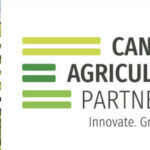
Next farm programs to focus on sustainability
Consultations have officially begun on the next Canadian agricultural policy framework. Federal agriculture minister Marie-Claude Bibeau said it’s time to look beyond the immediate challenges of the COVID-19 pandemic. The $3 billion Canadian Agricultural Partnership expires in less than two years on March 31, 2023. “There’s no question the Canadian Agricultural Policy Framework gives us […] Read more
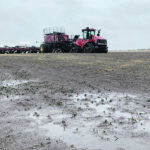
Rain to the rescue
Recent precipitation across the Prairies has been described as a billion-dollar rainfall, coming just in time to alleviate widespread drought concerns for now. Rainfall of generally 25 millimetres or more fell throughout the parched grainbelt in all three provinces through the May long weekend and some areas also received wet snow. The event prompted retired […] Read more
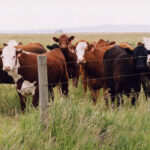
Canada’s BSE nightmare officially ends
The BSE era in Canada is over. Eighteen years after a single domestic case closed international borders to Canadian beef and cattle, the World Organization for Animal Health, known as OIE, moved Canada from controlled risk to negligible risk status. That puts Canada on par with its trading partners and opens the door to improved […] Read more
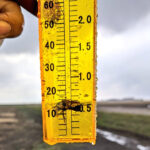
Farmer turns rain into fundraiser
A simple tweet raised tens of thousands of dollars for charitable organizations thanks to recent rain. Rob Stone, who farms at Davidson, Sask., posted a “rainy day challenge” on Twitter May 14. He pledged to donate $1,000 to a charity if it rained a half-inch or more at his farm by May 25. “Join me […] Read more
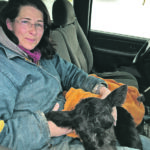
Producer bridges ranching, conservation sectors
On the Farm: Tamara Carter helps run a cattle operation and grain farm and works for the Nature Conservancy of Canada
Tamara Carter didn’t really need another full-time job. She, her husband Russ, and their three children run 250 head of cattle near Lacadena, Sask., and also have a 4,000-acre grain farm north of there at Plato. But the position of director of grassland conservation for the new Weston Family Foundation initiative at the Nature Conservancy […] Read more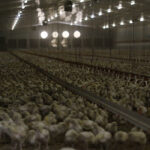
Chickens adjust to the dark: study
Broiler chickens learn when their barns will go dark and adjust their feeding patterns to have feed in their systems throughout that time, research at the University of Saskatchewan has found. This leads to better feed efficiency, reduced mortality and heavier market weights. Dr. Karen Schwean-Lardner told the Animal Nutrition Conference of Canada that work […] Read more
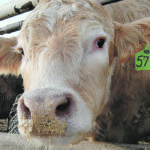
Improvements urged for feed ammoniation
Livestock researcher says the process for boosting low-quality feed’s palatability must be industrialized to make it safer
Ammoniation of low quality feed isn’t new, but research at the University of Saskatchewan is looking at how to make the process easier and safer as the world looks toward feeding more people. Dr. Gabriel Ribeiro, the Saskatchewan Beef Industry Chair, said the process has to be industrialized if it is to be of use […] Read more
Straw-based pulp mill planned for Regina
Kelowna-based Red Leaf Pulp Ltd. has announced it will build a wheat straw-based pulp mill in Regina. The company has land on the west side of the city and will begin construction in early 2022. The plant will cost about $350 million and be able to produce 182,000 tonnes of pulp each year from waste […] Read more
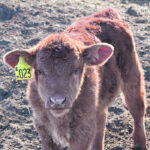
Beef network takes step forward
The Canadian Beef Improvement Network is moving closer to becoming operational. An executive committee has been named to guide its establishment and work is underway to determine the governance and operational models. The beef industry has been discussing the idea for years. The network is intended to link and unify genetic research and data to […] Read more


